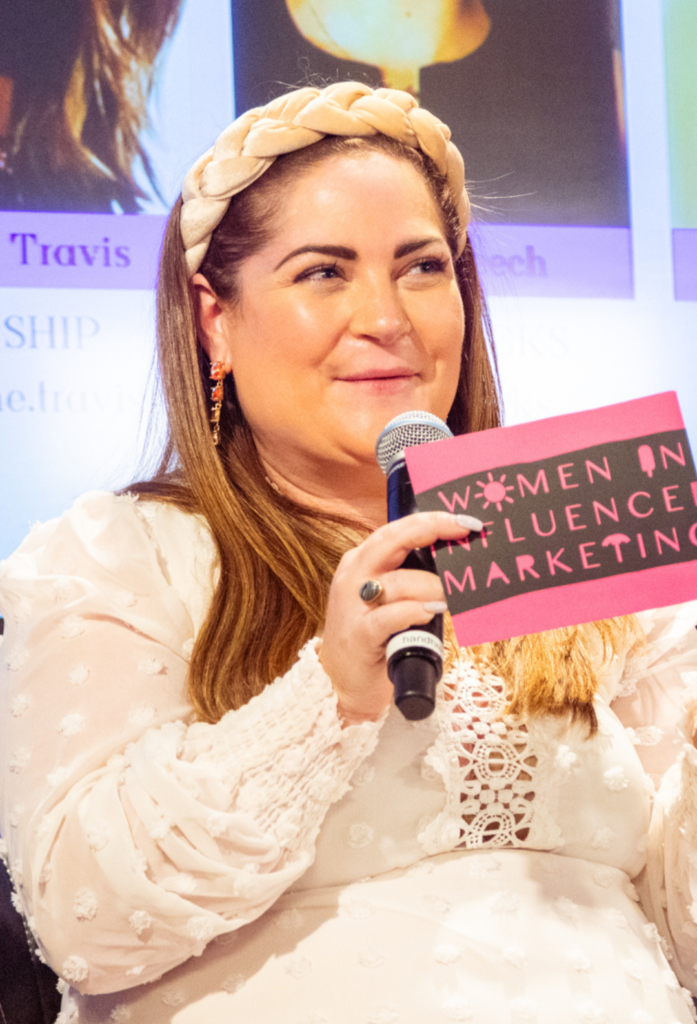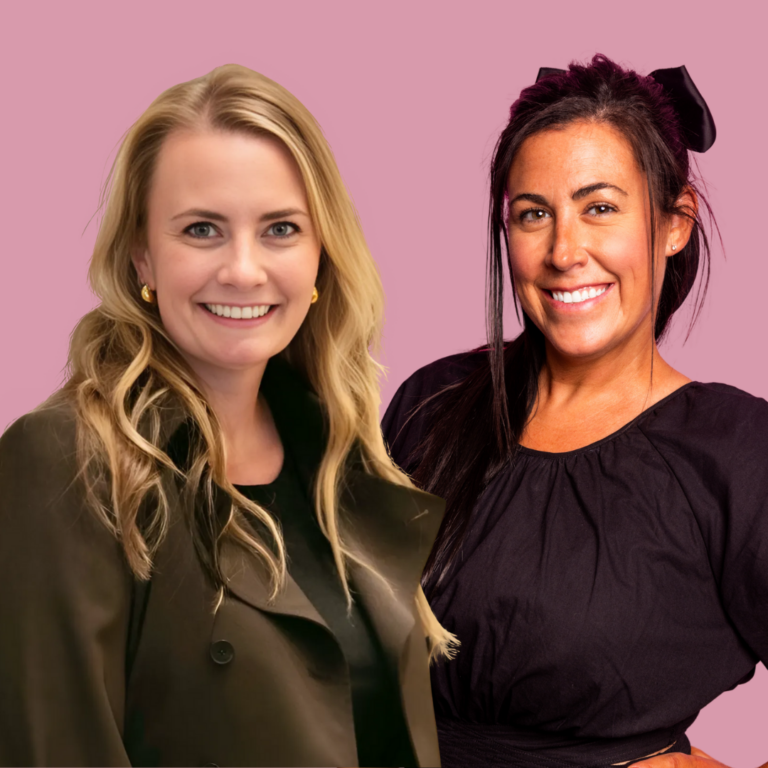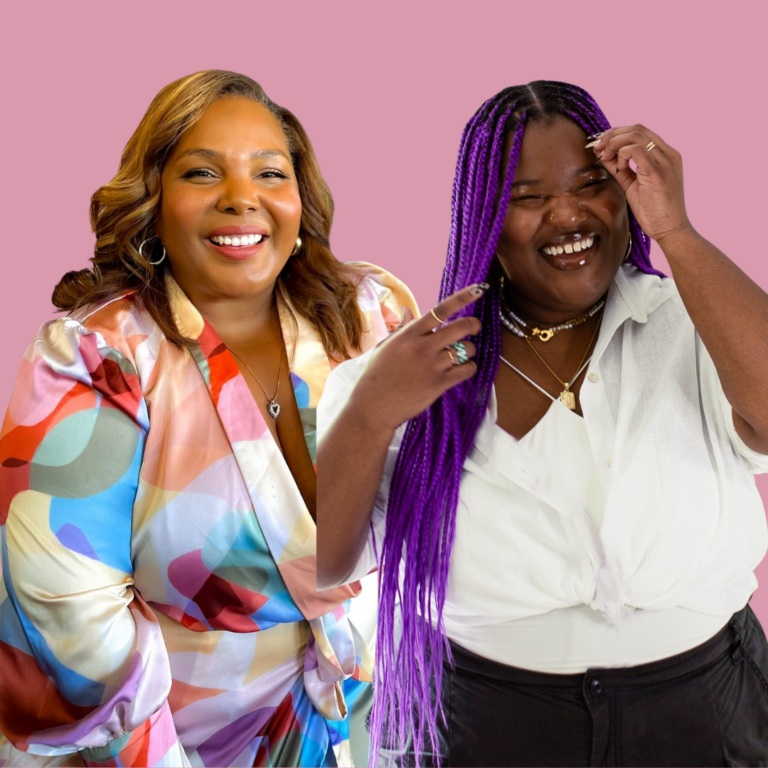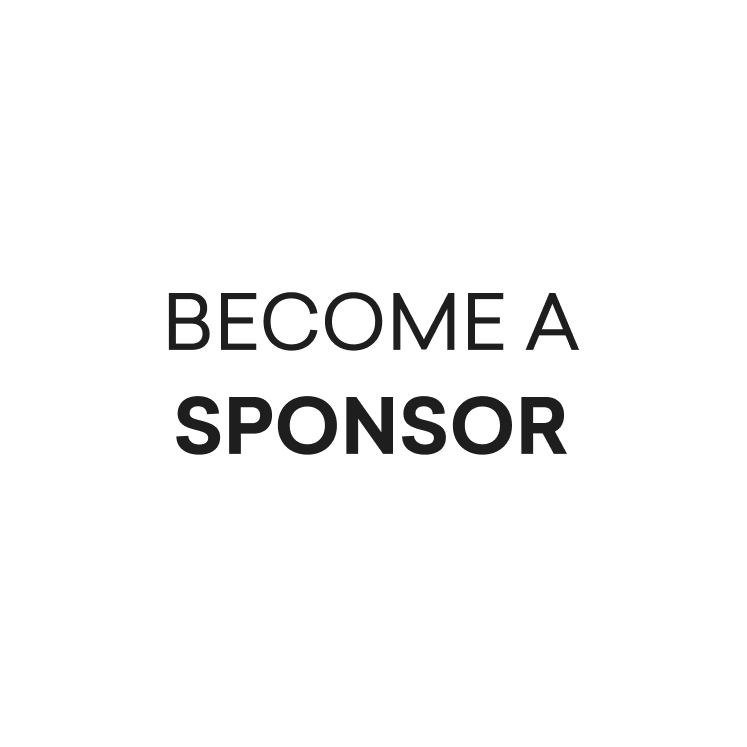[00:00:13] Jessy: Hey kids, welcome back. I’m super excited to have you here. We are in the holiday season, and in the thick of it, we are busy. Are you guys busy? I’ve heard both extremes. I’ve heard some people are swamped and it’s like that typical key four. I’ve heard other people say, where is everything? Like where’s everybody?
Like I’m messaging people and I, someone was telling me today, she’s like, I’m trying to pitch a bunch of clients to people I’ve reached out. Everyone’s telling me, oh, I’ve got like 10 days of PTO that like I got to take this year or else I’m going to lose it. So peace, I’m on vacation and it’s like one extreme or the other, but I do find that every year.
So whatever side of the equation you’re on, you’re not alone. Today’s episode is going to be an interesting one. It is a solo episode about negotiating. So there’s truly an art to it. It’s something that I enjoyed for such a long time. And I like to think of every negotiation as its unique puzzle. So stick around.
I hope you enjoy this episode and let’s get into it.
[00:01:38] Jessy: This show is sponsored by Women in Influencer Marketing, better known as WIIM, the best online community for the creator economy. You will meet fellow influencer marketers, you’ll meet brands, you’ll meet talent agencies to talk shop, and get hired. and even find a mentor. When you become a member, do not forget to check out all of our incredible resources.
For example, we have dozens of masterclasses from the top voices of TikTok, YouTube, award-winning agencies, and women who are paving the way for us all. So if you want the chance to network with a free school in influencer marketing, check out what it takes to become a member. Make more money and have fun doing it.
Visit Iamwim. com slash join. That’s I A M W I I M dot com slash join today and I so look forward to seeing you more around the community.
[00:02:36] Jessy: All right, guys. So first tip for, you know, negotiating and like this isn’t like a how-to video. It’s just things that have worked for me and things to think about when you’re negotiating.
But the first thing to think about when you’re negotiating is like, do you enjoy negotiating? Because, I gotta tell you, like, there’s some people that, like, just don’t enjoy it at all whatsoever. They’re, like, either much more creative or, you know, much more, like, big picture. And so, I think that that’s valid to always, like, stop and reflect to say, like, is this something that I enjoy or is this something that I don’t?
Because I don’t think it’s It’s possible to be good at something that you don’t enjoy. So if you are someone who enjoys negotiating, welcome to the club. Love negotiating as well. I think that we are negotiating all the time in our lives in a million different ways. And so that’s great because you can practice, you can practice in your home life, you can practice with your friends.
But of course, like the world series of negotiating when you’re negotiating a huge deal and you want to make sure you do right by your client. So what can you do? How do you improve your position? And we’re going to get into it today. So the first thing I always like to tell people and keep in mind, I coach a lot of talent managers, and this is something that comes up pretty often, is like, how do you negotiate better?
So, you know, one thing that I always want to emphasize is there are so many variables that can be negotiated. I think too often people fall into the trap of Well, we’re negotiating the fee, and like the fee is the most important thing and like it’s one of the more important things, but there are so many knobs and levers and, and things that you can, can change and alter and manipulate and you know, a little bit of this and a little less of that can change the deal entirely.
So I would just encourage you, for example, if you’re negotiating an influencer brand partnership and you have, you know, The information on the deliverables, you have the information on the exclusivity. You know, keep in mind, even with the deliverables and even with the exclusivity, just two aspects of the entirety of the agreement, even just with those two, there are multiple things that you can adjust and look at, negotiate about.
So for example, when it comes to the deliverables, let’s say, you know, it’s a YouTube video. Well, how long is the video? Is it a dedicated video or non dedicated video? Are they requiring that you are using the product or can you just like talk about like There are so many different aspects and things that you can utilize, you know, if the content is on Instagram, for example, like could we explore doing a carousel post versus reels?
Because for me, like creating photo content is, or my creator, creating photo content can be infinitely less time-consuming than creating a reel. So there are so many things that you can negotiate and play around with that I think can be beneficial. infinitely helpful. Another thing that you can negotiate in terms of content is the quantity of content because you know, your client, if your client is a creator might be much more interested in working with a brand and maybe charging less per deliverable if there are more deliverables.
So, you know, people I think are If they fall into the trap and get stuck in their ways of just negotiating what’s in front of you, what’s presented to you, and I guess like the first piece of advice that I would give is to like to think beyond what’s presented to you. Is there a way that I can upsell? Is there a way that I can build this into something else?
Because You know, if I’m presented with one YouTube video at X price, take it or leave it, you know, I would probably come back and say, well, I can’t do that. But how about this instead? And you know, it beats three or four YouTube videos and it’s like less per video. But if they’re committing to more videos.
It’s a better scenario and usually a win-win for everybody. There’s more of a, and you know, okay, why let me go into and elaborate on that. Right? Like, you know, part of the story that I like to tell is that, you know, the creators, especially in video content need more time and can benefit from having more time to expand upon all of the different use cases and the affinity towards that product.
You know, creators have said this for years. If it’s like a one-off, you know, a partnership where you’re, you know, you’re posting one and done about why you like this product very rarely ever resonates with people. And rare, even more rarely it’s them to convert to, to purchase the product or become a customer.
But if you post about them, you know, maybe once a month and you know, you share a little bit of why you like it in this video and a little bit of why you like it differently in that video. Then you build that use case and you build that story. And I think the stories are the most interesting and creators need the opportunity to do that.
They need the space to do it. So I’m giving them incentives of why you should upsell and why they should purchase more from you by giving them a better deal. Always, always a good thing when it comes to exclusivity. Oh my gosh, there’s so much to negotiate for exclusivity. So you know, I think that most people are focused on the length of the exclusivity, but the category or the product that they’re exclusive against is just as important.
And here’s what I mean. So let’s say the product is Google, right? That you are being asked to promote, well, If you are exclusive to all technology, that means you are not able to work with, I don’t know, Apple, or Beats, or, you know, Fitbit, or, you know, any sort of technology. I mean, technically that could be televisions, that could be refrigerators, that could be microwaves, that could be cars.
I mean, every, like, what isn’t technology nowadays? But, if, the partnership is truly just about. You know, Google, I don’t know, Google phones, let’s say. And that’s what you’re promoting. The ideal situation in most instances is to get them to narrow down the exclusivity to just being about phones because otherwise.
I always say, I’m happy to have my client be exclusive to the whole category, but that costs a lot more money. So you know, if you want to have some cost savings here, slash just be realistic about what the budget would be and have the ability, a real possibility for this to go through and come to fruition.
I think it’s important to be realistic about what the category of exclusivity is. So I always present it like that because I think that it’s important to explain your rationale for why. You are proposing that you are exclusive to just, you know, narrowing it down to a smaller category or a certain type of product.
Don’t just state those facts, like share a little bit of the why and, if it bonus points, if you can explain why it’s beneficial for them to do so, I eat the cost savings. But in addition to the category and really like honing that in making sure that the price is. It’s comparable to, you know, how many other opportunities you’re going to be missing out on if you’re exclusive to a certain category.
Also important is to talk about the length of time. And here is the, the gotcha that a lot of people fall into, you know, they’ll be like, all right, I negotiated it from, you know, a year to six months. Fantastic. Look at this great job that it’s the same amount of money. But I always like to tell people, so from then, when does the clock start?
Because you know, if it’s six months from questionable date, they could push that off for so long and, not being clear, not defining those things are incredibly important because it might have you miss out on other opportunities that you, you couldn’t account for. Like you can’t, you can’t plan for because you don’t know when the clock starts.
So just make sure to define when that exclusivity starts. Or you could do a, you know, it expires no later than X date. Those are been a couple of tips that have helped me throughout the years. The other thing to keep in mind in terms of how to negotiate is I just think that people need to humanize the negotiating process a bit more.
I’ll tell you what I hear. I hear from friends of mine who work at agencies or who work for brands. It almost seems like you’re negotiating with a robot. No one wants to negotiate with a robot, you guys. No one. If you don’t want AI to take over your job and you’re concerned about that, stop acting like a freaking robot.
Because like AI could negotiate on behalf of your creators. But like, why would your creators hire you and work with you? Because you are not a robot. It’s because you are a human being and you, in doing so, like should infuse humanity into all of your negotiations. So. I like to tell people, ask the other side what they need, what their goals are, you know, where, where they’re falling short, like in their search for creators, like what haven’t they been able to find?
What haven’t they been able to achieve? Set those expectations ahead of time, and build them into the agreement if you can. But I feel like, you know, a little bit of extra upfront work and communication. And expressing that, you know, it’s a joint effort here and that it’s not just one-sided and you don’t feel like defensive of your client and, you know, people are so much more receptive to that, you guys, people will come back and work with you time and time again, if your approach is coming from just more humanity.
So, you know, look, I, these are just a handful of tips in terms of how to. Be a better negotiator. Also, don’t take things personally. That’s something that’s taken me a lot of time, to hone in on and to like perfect. But I know that when I was representing talent, I defended them so much. And I took it personally when I was given what I considered was a really lowball offer or, you know, take it or leave it type offer.
But, you know, I like, I do believe that sometimes, you know, deals It’s not the right time for it to happen. And, you know, it’s just not the right fit for the, for the time. And that’s okay. And, you know, I’ve had some of my most impressive clients who were never afraid of walking away from a deal.
And miraculously, as soon as you respectfully said, no, thank you, they would come back with all the things that you wanted. So, you know, if there are any tips that I can give you guys, it’s just those few things. And the last one might be one of the most important ones, which is. You know, having confidence in walking away and standing by what you believe is a really powerful tool.
I do think that you know, hopefully, there is an element of reality in what prices you’re quoting and making sure that you’re communicating with the other side. And trust has to be built to trust that what they’re telling you is accurate and that they’re not trying to lowball you, of course.
So building those relationships is super important. Communicate with them, add an element of humanity, and have the confidence to walk away. So this is a short episode, you guys. I hope you enjoyed it. I hope it takes something from it, and I want to hear what you guys think, too. Like, what’s been your, you know, your, the hardest, toughest part of negotiating?
and what are some of the best tactics that you use and try to infuse in all of your negotiations? Do you enjoy it or do you hate it? Let me know you guys in the comments on YouTube. Let me know as a comment on our Instagram post because we post about the podcast every single week on a WIIM.
It’s wonderful having you guys back here. We also had a lot of you guys share about the show on Instagram mostly because the Spotify-wrapped list came out, so it’s so cool hearing that we’re in your top five podcasts. Like, I’m honored. And we would not be doing this podcast if it wasn’t for you guys. So if you wouldn’t mind, if you do enjoy the show, share those Spotify raps.
It’s cool to see who you listen to as well. It’s interesting for us to see if you listen to us, what other podcasts do you listen to? So share those, tag them on, tag us on social, and we’ll share them in our stories. And if you enjoy the show, as always, please leave a review. Hope you enjoy it.
Have a wonderful week, guys. See you soon.
[00:15:35] Jessy: If you enjoyed this episode, we gotta have you back. Check out our website for more ways to get involved, including all the information you need about joining our collective. You can check out all the information at IAMWIIM.com. Leave us a review, and a rating, but the most important thing that we can ask for is your What I’m going to do is to share this podcast.
Thanks for listening. Tune in next week.
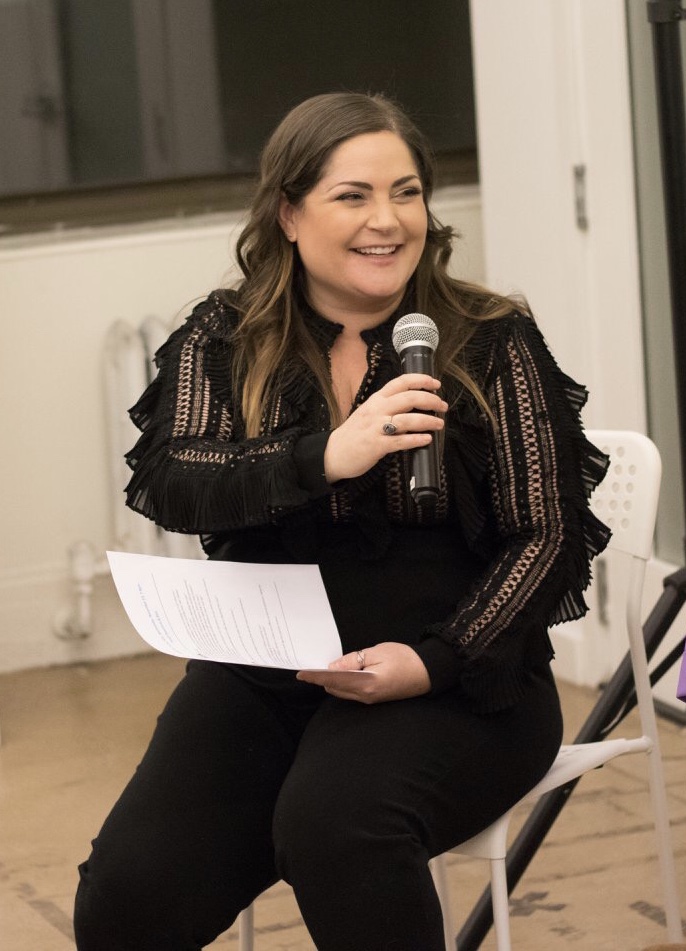
JESSY GROSSMAN
Founder of Women in Influencer Marketing and CEO of Tribe Monday
Jessy Grossman is a long time entrepreneur in the digital media space. She’s passionate about supporting women in business and being at the forefront of innovation. She’s been quoted in Forbes and was awarded a spot in the “Influencer Top 50” by Talking Influence. In less than two years she created one of the fastest growing talent agencies in the country. Amidst unprecedented growth, she sold the multi-six-figure agency and pivoted to focus on her long-time passion project: Women in Influencer Marketing (better known as WIIM). Founded in 2017, today WIIM is the premiere professional organization for those who work with influencers. The community offers networking and new business opportunities, career services, continuous education and more. Jessy also does consulting, advising and influencer marketing recruiting with her company Tribe Monday. You can find inspiring stories and more about Jessy on the WIIM Podcast. Check out iamwiim.com and tribemonday.com for more information.

